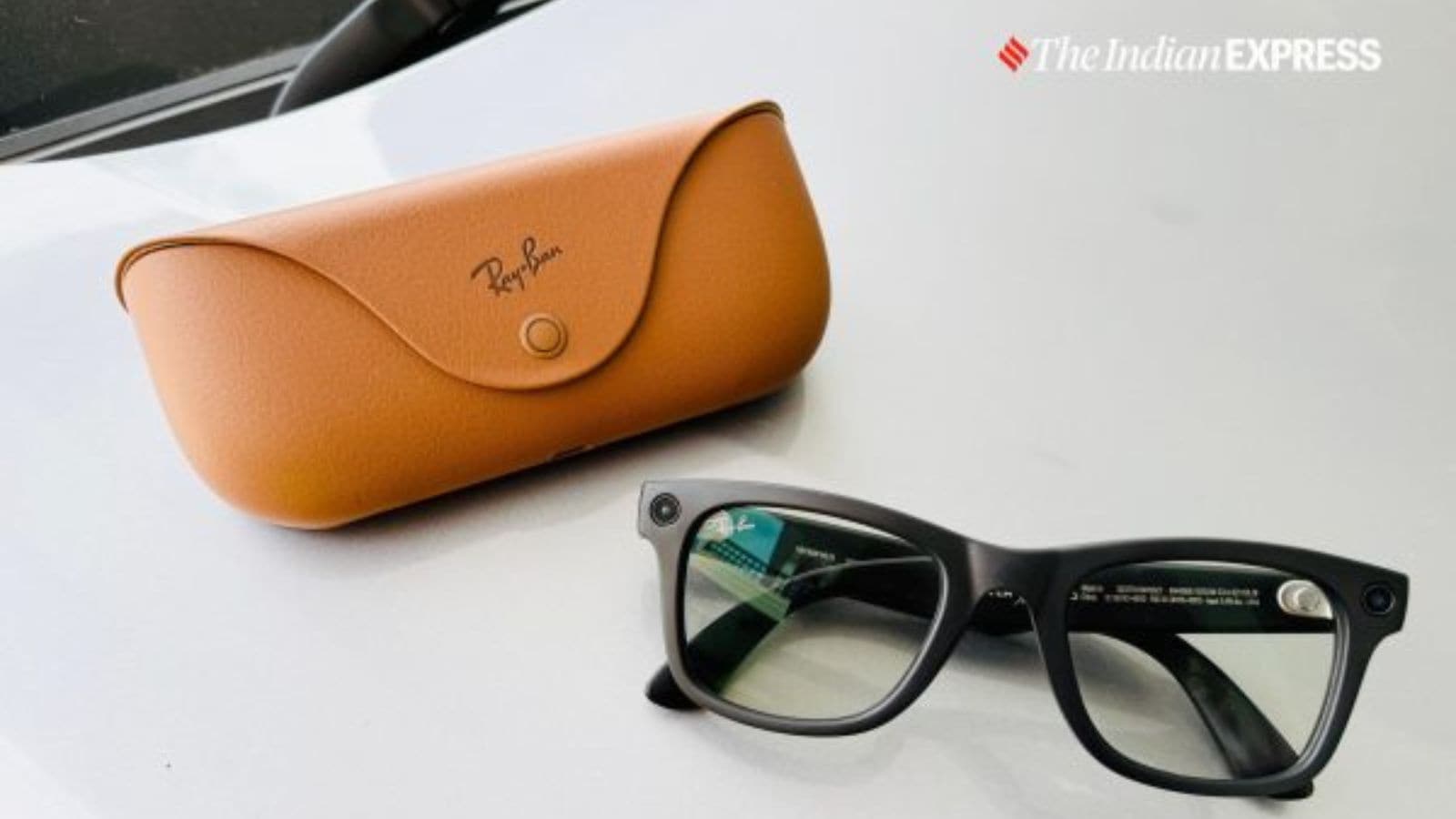Meta continues to increase its share of the global smart glasses market with its AI-powered Ray-Ban glasses, growing shipments by 73 per cent in the first half of 2025, according to figures from Counterpoint Research.
The tech giant’s dominance in the smart glasses market has been driven by strong demand and the expanded manufacturing capacity of Luxottica, the parent company of Ray-Ban and Meta’s key trading partner, as per the report by the market research firm. It further said that the global smart glasses market grew by 110 per cent year-over-year (YoY) in H1 2025.
In February this year, Meta said it has sold more than two million pairs of its flagship Ray-Ban AI glasses since it was introduced in October 2023. Besides Meta, other OEMs that achieved shipments of their AI-powered smart glasses in H1 2025 include Chinese brands such as Xiaomi, TCL-RayNeo, Kopin Solos, and Thunderobot.
“We expect the rapid growth of the global smart glasses market to continue throughout 2026 and beyond. More new AI glasses models are expected to enter the market in H2 2025, including upcoming releases from Meta, Alibaba and several smaller players,” Counterpoint Research said on Tuesday, August 12.
AI smart glasses accounted for 78 per cent of total shipments in H1 2025, up from 46 per cent in H1 2024 and 66 per cent in H2 2024. This was largely due to the dominance of Ray-Ban Meta AI Glasses, the report read. The global smart glasses market is made up of two segments. While the AI smart glasses segment grew by over 250 per cent YoY in H1 2025, the report stated that shipments of audio smart glasses have declined.
The Counterpoint Research analysis comes days after US President Donald Trump’s proposed tariffs on key allies, including India, went into effect on August 1. However, analysts expect limited impact of US-imposed tariffs on growth of smart glasses.
“The global tariff crisis for electronic devices during the first half of the year has had a limited impact on the smart glasses market so far, as the situation still appears manageable for key OEMs and their manufacturing partners,” Flora Tang, Senior Research Analyst at Counterpoint Research, was quoted as saying.
Story continues below this ad
Dominance of Ray-Ban Meta AI glasses
Luxottica, Meta’s production partner in the Ray-Ban AI glasses, is said to have played a critical role in the success of the wearable by “not only by scaling up production but also by supporting product longevity through the expansion of style variants and driving retail sales.”
“According to our channel tracker, Luxottica’s own retail networks, including online and offline Ray-Ban stores, Sunglass Hut and LensCrafters, account for a significant portion of the product’s sales,” the report read.
The strong demand for the Ray-Ban Meta AI glasses is reflected in their presence in major markets such as North America, Western Europe, and Australia which lead global smart glasses shipments.
Its shipment shares were further boosted by the expansion of the wearable into India, Mexico, and the United Arab Emirates (UAE) in Q2 2025. In June this year, the wearable became available for pre-order in India in a range of styles, including the new Skyler frame, with prices starting at Rs 29,900 and going up to Rs 35,700 for select models.
Story continues below this ad
The smart glasses can also be paired to your smartphone using the newly introduced Meta AI app.
New entrants in the market
Beyond Meta, the other major OEMs in the global AI smart glasses market are Chinese players such as the recently unveiled Xiaomi AI Glasses, TCL-RayNeo’s RayNeo V3 series, Thunderobot’s AURA smart glasses, and the Kopin Solos AirGo V series.
Terming Xiaomi’s AI glasses as a ‘dark horse’, the report said that the wearable became the fourth best-selling model overall and the third best-selling product in the AI glasses segment despite being on the market for about a week in H1 2025. “The Xiaomi device’s sales were driven by strong support from tech enthusiasts and Mi fans in China. We expect Xiaomi to continue enhancing the product’s performance through OTA and software updates in the coming months,” Tang said.
The AI smart glasses component manufacturing sector is also seeing the entry of various Chinese chipset makers such as Allwinner Technology, which is offering low-cost SoC solutions aimed at powering more affordable smart glasses.
Qualcomm also recently launched an upgraded version of its AR 1+ Gen 1 chipset which is said to be 26 per cent smaller and consumes 7 per cent less power, enabling smart glasses with slimmer product designs and longer battery life.
Story continues below this ad
Shipments of smart audio glasses from major players such as Amazon and Huawei has suffered “due to rising competition from AI glasses” that offer more advanced features “such as photo and video capture, image and object recognition, encyclopedia-based Q&A, live translation and more.”
Projections for H2 2025
Counterpoint Research said that it has revised its smart glasses market forecast for both 2025 and 2026 based on the market’s momentum and continued influx of new entrants. “We continue to expect the market to grow at a CAGR of over 60% between 2024 and 2029,” it said.
“More AI smart glasses are expected to enter the market from H2 2025 onward, including launches from internet giants such as Meta and Alibaba. Meta recently introduced the Oakley Meta glasses, featuring improved battery life and enhanced video-shooting quality over the Ray-Ban Meta AI Glasses, and primarily targeting athletes and sports enthusiasts,” the report read.
“Our industry checks indicate positive market feedback for this model. We expect Meta will take a more aggressive approach and unveil a broader product lineup at the Meta Connect event to further drive growth. Meanwhile, we believe Apple is also actively exploring this space and developing its first AI glasses,” it added.

